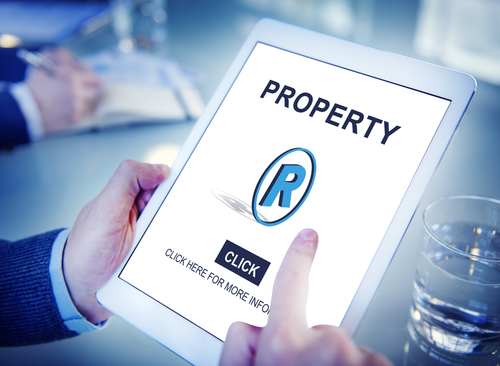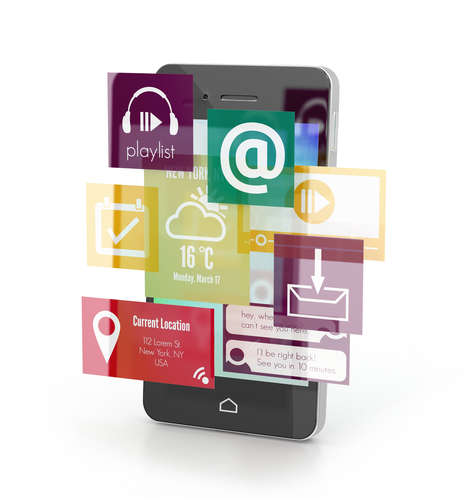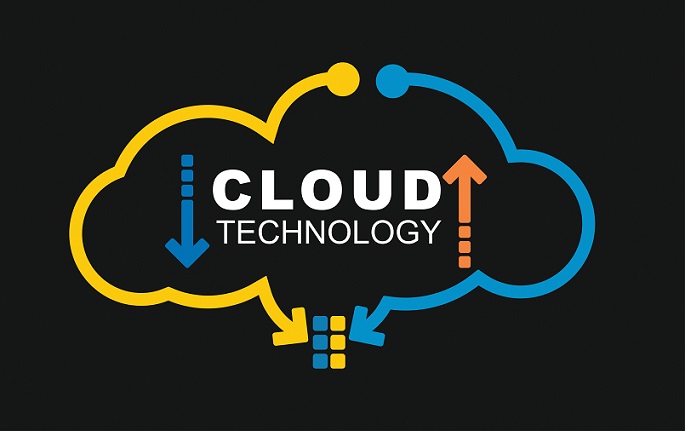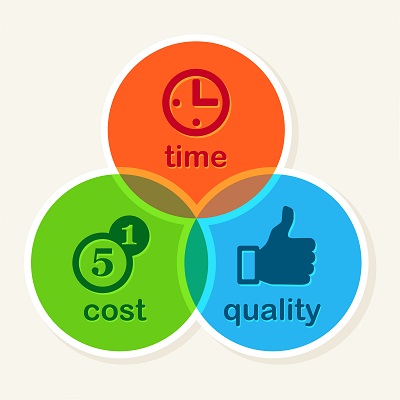How to select the right Software for Property Management
Opting for the Best Property Management Software
Leasing out condos or premium apartments to buyers does not end with the handover. Instead, it goes a long way almost in a cyclical manner to oversee the operations and management via close monitoring. Dynamically managing multiple residential or commercial real estate establishments could, in fact, prove to refine it all together as well as endow a consistent experience to the tenants.
The landowner or a real estate company benefits from able to supervise every cent of property they own and leases. It equates to improved productivity enabling the owner to gain a competitive advantage by striving for customer satisfaction at every fronts. This could be a rather not brief definition of property management. And with technology like software integrated into it, we can christen it aptly as property management software.

Investing in an apt property management software elevates and rethinks how realtors or landlords manage their swathes of property. Whether small modular condos, high rises or dedicated commercial hubs, property management using software takes it to the next level. The need to switch becomes more prominent as conventional methods have often failed to demonstrate exemplary levels of property management.
Software alters it into a convenient dashboard, where the owner could simply manage, monitor and operate day to day activities linked to a piece of real estate. Ensuring timely rental payment, maintenance and upkeep, searching tenants for occupying could all be effectively carried out using a property management software. The key is to opt for the right one since the wrong choice would end up curtailing existing practices by cutting out efficiency.
Clinging to Conventional Practices Risks Lagging Behind
As it turned out, property management involves a lot of hurdles that leave the owner frustrated and stressful at times. The job profile when it comes to managing multiple portfolios of real estate assets dispersed across varied locations coupled with maintenance requests, tracking lease expires, routine inspections, ensuring regulatory compliance, responding to inquiries concerning vacant properties and lot others would be equally challenging.
Extensive documentation remain a core aspect when it comes to property management. Besides, the above-mentioned aspects when not managed appropriately could add up to the inefficiency of the job, which reflects in the productivity and performance. Property management software is new and adopting it will definitely warrant less clutter involved in the process. Still, adhering to conventional practices like paperwork or documentation proves time consuming and cumbersome.
The right property management software makes life easy for property managers, improving their productivity and contributing to improved customer satisfaction in a big way. In fact, the right software becomes a valuable source of competitive advantage, enabling the firm to gain a one-up on competition through efficiency improvements and by spawning innovative business practices.
However, the trick is to have the right property management software on hand. Here are some ways to identify and deploy such software.
Good Property Management Software Distinguishes with Ease of Use
The whole purpose of deploying software is to ease things. Software with poor UX, and or convoluted processes, which is a pain to operate, defeats the very purpose. The best software has a smooth interface and navigation, and simple, yet powerful dashboards.
Handy property management software automates routine processes related to rental collections, renewals, and other repetitive functions.
It offers basic functionality like search with multiple fields such as tenant name, property id, or any other relevant identifier, to access the required information easily, and throws up what is required in an easy-to-consume way.
The software is now delivered as mobile apps, making it very easy and convenient to get access to the latest and relevant information on the field and capture field-based inspections as well. Responsible design or a mobile-first design approach improves the ease-of-use of such mobility solutions.
Good Property Management Software Feature Robust Technical Stack
Enterprises vary with regards to their technical maturity. Some enterprises may be perfectly at ease experimenting with newer but unproven technology, which may offer huge benefits but also come with the risk of crashes. Other enterprises prefer stability over potential. Either way, the cloud is fast becoming indispensable.
Cloud-based software spares the cost and hassles of installing software or managing the databases on in-house servers. The data resides on the Internet, enabling anywhere, anytime access, from any device. Besides, it spares enterprises from cost-center activities such as taking backups, updating the code at regular intervals, and other administrative hassles.
Property management firms placing their key data such as rental information, financial reports, documents and everything else on the cloud can streamline operations, thus saving time and reducing costs.
Sync with Technical Capabilities Enhance the Dynamism of the Suite
Smart solutions, especially mobile-based solutions leverage the latest that technology has to offer to enhance the capabilities of the property management suite. A case in point is a messaging system to engage with landlords, tenants and service providers on a direct, real-time basis, to close and resolve issues or deals quickly, and with clarity.
Such a system could either be custom developed or more easily achieved by seamless integration with Skype or some other messaging tools. Similarly, many property management suites integrate with QuickBooks for accounting.
Likewise, good property management suite improves internal processes, making the overall business more efficient. The easy tracking capabilities on offer make stakeholders, especially service providers, more accountable. An optimized navigation system renders role-clarity to employees and agents.
The Feature List is a Double-Edged Sword
A lengthy bucket list of features is no indication of having the right software. In fact, an application with too many features may become bloated and deliver poor user experience. The trick towards deploying the right software is ensuring it has all the relevant features required for seamless operations, nothing more, and nothing less. All things aside, a decision to opt for a reliable property management software starts with assessing the needs.
A realtor or property management company owner first need to consider, whether software indeed can prove to be an advantage and uplift their business process. They need to figure out up front what they want the software for, in terms of their biggest challenge, and prioritize the functionality list towards resolving such challenges.
One could ask themselves some noteworthy questions in the interest of choosing the right software such as:
- What are some key issues faced and how would software resolve each of them?
- Is mobility an option for the work – which require the software to come in a compact and handy mobile app version?
- Are self-service portals needed in the software to serve the needs of customers like residents or clients?
- Is the software having accounting features and capable of dealing with large volumes of maintenance requests?
For instance, if the biggest challenge is managing rentals, make sure to co-opt features that alleviate specific challenges to this end. Other features, such as compliance reporting or communication capabilities are handy add-ons, and should not be the core focus of the suite.
Mobile apps especially work well for specific purposes, with different apps for different objectives of stakeholders. For instance, a property manager could have apps helping them keep track of rental expiry, invoice and payment tracking, maintenance schedule and more. An app for a field service executive could have features such as open service tickets, directions to get to the property, and more.
Apps for tenants could integrate features to initiate maintenance requests, pay rent and fees online, auto-renew lease, and more. Above all, it should integrate stringent security measures such as two-factor authentication or high-end encryption to protect vital customer and company data from any intrusion attempts both internal or external. A comprehensive property management suite could integrate all functionality, leading to seamless integration and better coordination.
Work Orders are Core to an Intuitive Property Management Suite
Intuitive property management software facilitates creating and managing work orders, either through a ticketing system, or some other method. Successful deployments integrate the entire workflow connected with the process, right from raising the issue, assigning work to the relevant service provider, keeping track of work execution, and invoicing. This spares property managers from the hassles of manual monitoring and tracking.
Advanced systems come with the ability to incorporate images and videos, facilitating visual work orders, property viewing, and more. Such innovative functionality helps property managers get more work done without the time-consuming activity of making site visits.
Reporting Capabilities are Integral to Software for Property Management
Another crucial consideration for sound property management software, regardless of the functionality, is the reporting capabilities on offer. The ability to generate dynamic reports easily saves property managers time and enables them to stay on top of the game. The greater insights on offer contribute to improved customer satisfaction as well.
The best software for property management facilitates dynamic reports, in the format of choice, rather than straight-jacketing the reports to a few fixed forms. An intuitive software integrates report with analytic capabilities, allowing property managers to gain insights from raw data in easy-to-consume actionable format.
The property manager’s life will become considerably easier if the software integrates full double-entry accounting, with flexible reports. A spin-off benefit of such functionality is the ability to meet various financial and regulatory compliance requirements.
The Best Property Management Software is Optimized for the Budget
Many enterprises get carried away by the potential on offer and ignore the crucial cost competently. There is no free lunch, and even supposedly free open source software comes at a price to develop and customize. The costs for server space and hosting, and ensuring security is another crucial consideration to decide up front. Successful property management firms engage smart developers who can optimize the features and functionalities within the constraints of the available budget, without sacrificing quality.
Professionally managed real estate investment market is worth $8.5 trillion globally as of last year, but it has traditionally lagged behind in technology. However, innovative companies are changing things and technology is all set to improve the owner-tenant experience significantly via a major technological disruption soon.
Selecting the right software is both a science and an art. Apart from the science of carefully evaluating the feature list and the technical specs, comes the challenging, yet often underestimated “art” of identifying vendors who “fit.” Any software, no matter how robust or comprehensive requires continuous support for upgrades and bug-fixes.
Moreover, implementation is often a challenging exercise, involving training end users and documentation. Choose a software vendor who is competent and has proven their worth in all these facets.
Stay up to date on what's new

Recommended Posts

27 Jun 2022 Real Estate B2B
Why Is PropTech The Need Of The Hour For Real Estate Companies?
Call it the innovation driver or the disruptive power, PropTech – the intersection of property and technology – has massively influenced real estate in recent years. More than two-thirds of……
Featured Blogs
Stay up to date on
what's new
























































